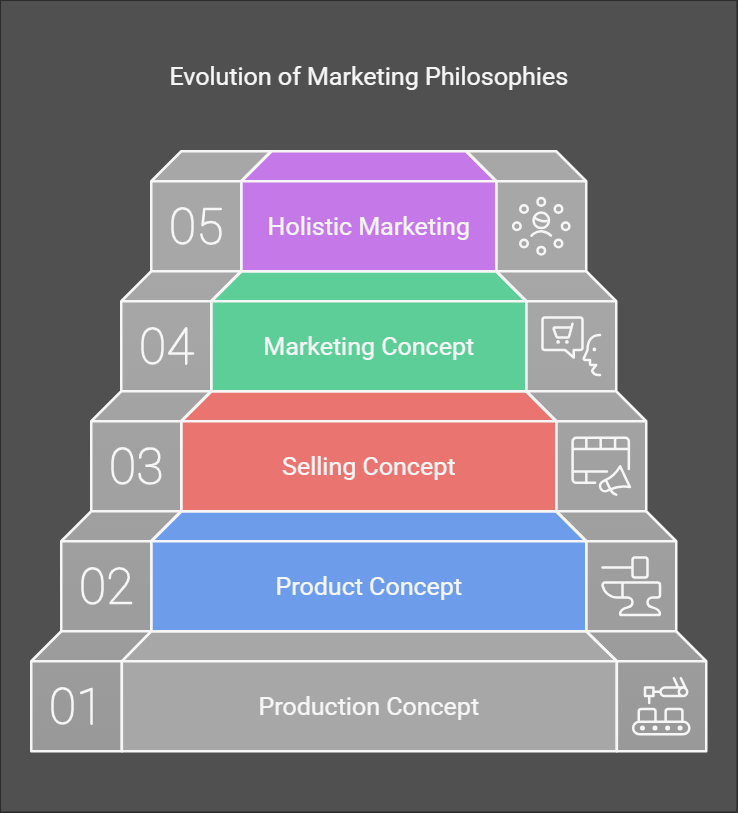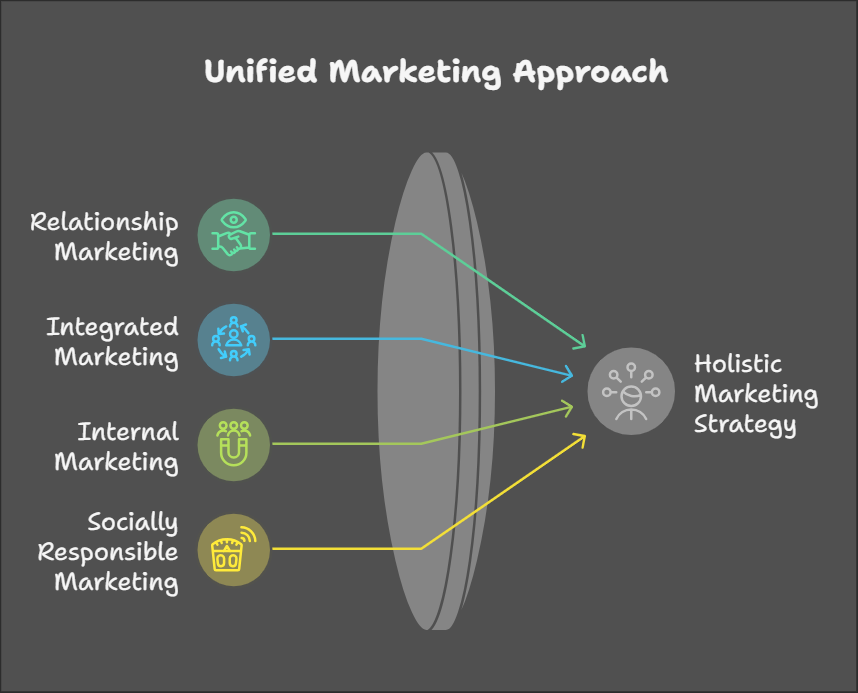Evolution of Marketing
Evolution of Marketing Philosophies
Marketing philosophies have evolved over time, reflecting changes in the marketplace, consumer behavior, and business practices. Here's a look at the key stages in this evolution:
1. The Production Concept
- Focus: High production efficiency, low costs, and mass distribution.
- Assumption: Consumers prefer products that are widely available and inexpensive.
- Example: Ford's Model T car, which was produced on a large scale to make it affordable to a mass market.
- Limitations: This concept can lead to a lack of focus on customer needs and preferences, and may not be suitable for all products or markets.
2. The Product Concept
- Focus: Product quality, performance, and innovative features.
- Assumption: Consumers favor products that offer the most in terms of quality, performance, and innovation.
- Limitations: Even a superior product may fail if it's not priced, distributed, and promoted effectively. This concept can lead to "marketing myopia" - a focus on the product itself rather than the needs it satisfies.
3. The Selling Concept
- Focus: Aggressive selling and promotion efforts.
- Assumption: Consumers will not buy enough of the company's products unless they are actively persuaded to do so.
- Application: Often used with unsought goods (products that consumers don't typically think of buying, like life insurance or cemetery plots) or when companies have overcapacity.
- Limitations: This concept can be short-sighted and may not lead to long-term customer satisfaction or loyalty.
4. The Marketing Concept
- Focus: Understanding and meeting customer needs and wants.
- Assumption: The key to achieving organizational goals is being more effective than competitors in creating, delivering, and communicating superior customer value.
- Shift: From a "make and sell" philosophy to a "sense and respond" philosophy.
-
Key Principles:
- Customer focus
- Integrated marketing effort
- Profitability
Holistic Marketing
Holistic marketing is a philosophy that emphasizes the importance of integrating all aspects of marketing into a cohesive strategy. It's about creating a unified and consistent brand experience for customers across all touchpoints.
Key Components of Holistic Marketing
-
Relationship Marketing:
- Focuses on building long-term, mutually beneficial relationships with key stakeholders, including customers, employees, partners, and the financial community.
- Aims to create a "marketing network" of loyal and engaged stakeholders who contribute to the company's success.
- Examples: Loyalty programs, customer relationship management (CRM) systems, employee empowerment initiatives.
-
Integrated Marketing:
- Coordinates all marketing activities and programs to deliver a consistent message and value proposition to customers.
- Integrates the 4 Ps of marketing (product, price, place, promotion) into a comprehensive strategy.
- Ensures that all marketing efforts work together seamlessly to achieve common goals.
- Examples: Consistent branding across all channels, integrated marketing campaigns, coordinated messaging across online and offline platforms.
-
Internal Marketing:
- Focuses on motivating and empowering employees to deliver excellent customer service and support the company's marketing efforts.
- Recognizes that employees are internal customers who need to be engaged and aligned with the company's values and goals.
- Examples: Employee training programs, internal communication initiatives, employee recognition programs.
-
Socially Responsible Marketing:
- Considers the ethical and societal impact of marketing decisions.
- Aims to balance the company's needs with the needs of customers and society as a whole.
- Examples: Sustainable marketing practices, cause-related marketing, ethical sourcing.


